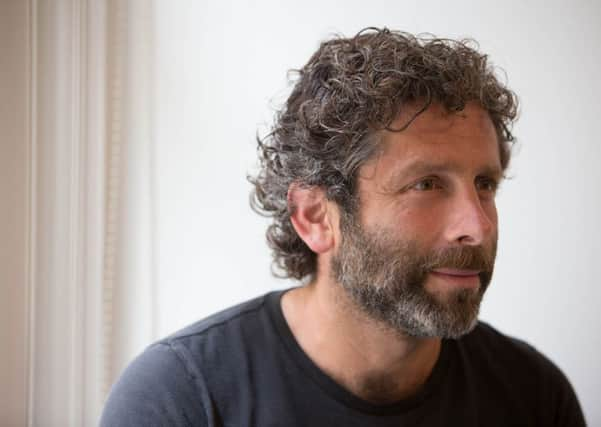Elliot Leavey on growing up Jewish in Leeds, becoming an actor and Tom Hiddleston's pants


On December 31, 1999, Elliot Levey’s friends were in Athens preparing for what promised to be the most memorable New Year’s Eve party of their lives. He was supposed to be there too, but as the clock ticked onwards towards midnight, the Leeds-born actor was nowhere to be seen. Instead he had his head buried in a book that he just couldn’t put down. “Once I started reading Howard Jacobson’s The Mighty Walzer I just couldn’t stop,” says the 40 year-old. “I was underneath the Acropolis thinking, right I’ve got to get a move on, but I’m not going anywhere until I finish this thing. It was unputdownable.”
It’s perhaps no surprise that Jacobsen’s tale of a Jewish man looking back on his life as a young boy and ping-pong star in Manchester chimed with Levey, who is about to take the lead role in a new stage adaptation of the novel. While he may not have won any trophies for table tennis, he too grew up in a northern Jewish community and while his parents were secular he had an oddly orthodox upbringing.
Advertisement
Hide AdAdvertisement
Hide Ad“It was Alan Bennett who said that the best moments in reading are when you come across something which you had thought special and particular to you set down by someone else. It was, he said, as though the author’s hand comes right out of the page and takes yours. That’s what I felt reading The Mighty Walzer. Suddenly I realised that all these things that I thought were peculiar to my own childhood had actually been felt by lots of other people.
“Jacobson captured what it is like for a child of recent immigrants. With every subsequent generation there is a desire to progress, but there is I think something that ties you to your past.
“While neither of my parents were particularly religious, my father had a maxim that there is never an argument for ignorance and therefore he wanted me to taught as much as possible about Judaism. Most of us over the years have gently eased our way into a very secular society, but I honestly believe that I benefitted enormously from that education.”
Levey says he never set out to become an actor and, in fact, before he went to Oxford University to study philosophy he already had an entirely different career in mind. “Whenever my uncles would ask what I was going to do when I grew up I would tell them about my plans to be a lawyer. It was a good profession for a nice northern Jewish boy and that was honestly my intention. There were, however, two things which changed that. The first was getting a place at the National Youth Theatre where we performed a slightly obscure play by Lionel Bart called Maggie May about a Liverpudlian prostitute. As a teenage boy I found myself the object of people’s attention. At that age, suddenly having people applaud you is quite beguiling and incredibly seductive.
Advertisement
Hide AdAdvertisement
Hide Ad“I was probably already sold on acting at that point, but it was cemented when I was at university. Everywhere you looked people were putting on plays and the colleges seemed to have a pot of money sloshing around to pay for productions. It’s no wonder that some of student directors went on to pretty much rule the world.”
Prior to graduation Levey was already entertaining thoughts of going to drama school, but before he had chance to audition, he had already caught the eye of a number of casting directors. He assumed at some point the work – and the money – would dry up and he would be forced to apply to the likes of Rada, but it never did.